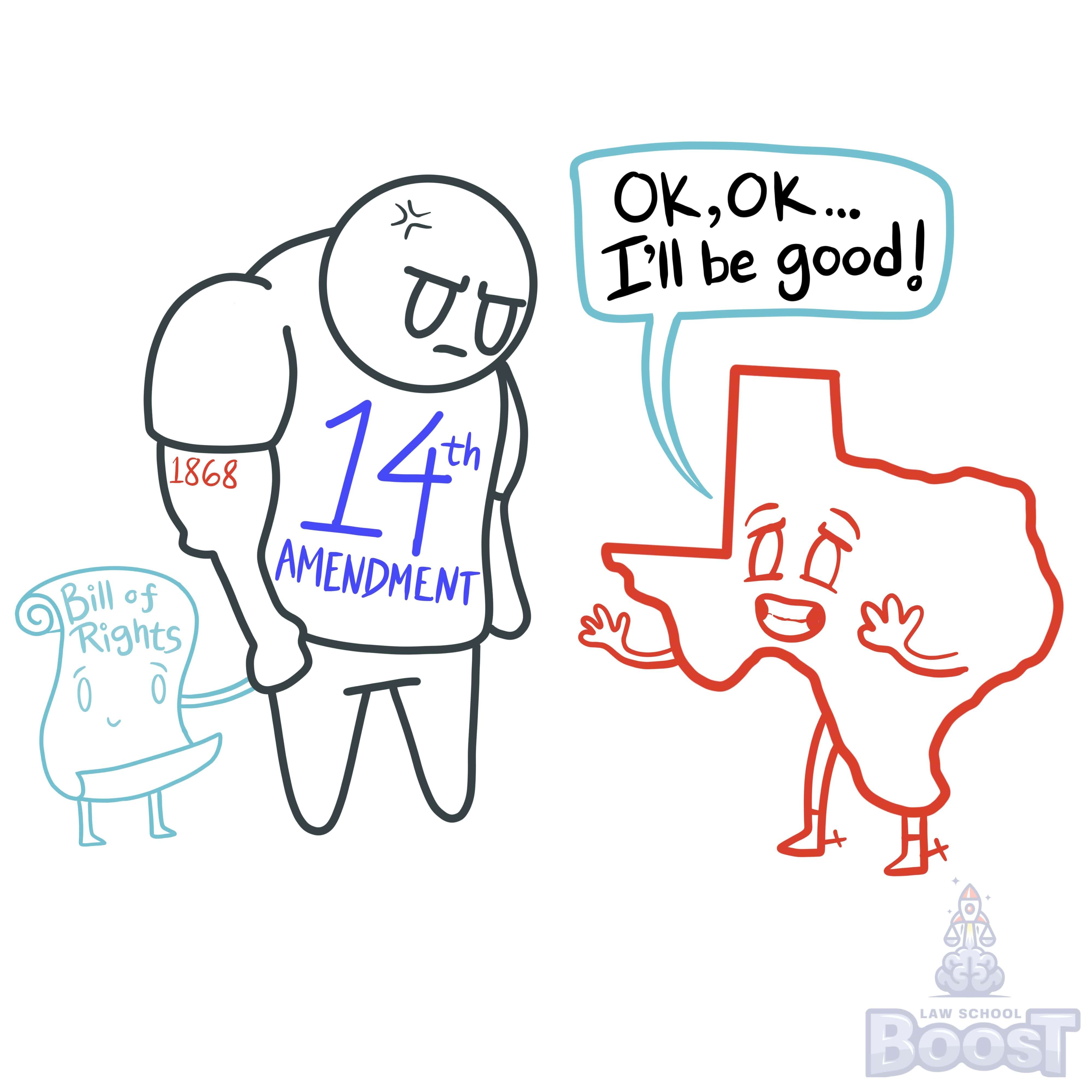🇺🇸
Constitutional Law • Bill of Rights
CONLAW#057
Legal Definition
The Bill of Rights applies only to the federal government (directly), but has generally been incorporated through the Due Process Clause of the 14th Amendment to apply to state and local governments as well.
Plain English Explanation
When adopted, the Bill of Rights restricted only the federal government, not the states. The concern was limiting federal power. So states could still infringe on rights like free speech, religious freedom, etc.
But after the Civil War, the 14th Amendment was enacted, barring states from depriving people of "life, liberty, or property without due process." Over time, the U.S. Supreme Court ruled this due process clause "incorporated" the Bill of Rights against state/local governments.
Now most Bill of Rights provisions apply equally to federal, state, and local authorities. They protect against all government infringement of core liberties. States cannot circumvent rights by claiming the Bill only limits federal power. Through incorporation doctrine, it restricts all levels of government.
But after the Civil War, the 14th Amendment was enacted, barring states from depriving people of "life, liberty, or property without due process." Over time, the U.S. Supreme Court ruled this due process clause "incorporated" the Bill of Rights against state/local governments.
Now most Bill of Rights provisions apply equally to federal, state, and local authorities. They protect against all government infringement of core liberties. States cannot circumvent rights by claiming the Bill only limits federal power. Through incorporation doctrine, it restricts all levels of government.
Hypothetical
Hypo 1: Hypofornia bans all books criticizing the government from public libraries. Sam, a resident, sues the state, claiming this violates his First Amendment rights. Result: The court uses the Due Process Clause of the 14th Amendment to apply the First Amendment to Hypofornia, ruling in favor of Sam, as states cannot restrict freedom of speech.
Hypo 2: In New Hypoland, Bob, a state governor, signs an executive order allowing the state to search anyone's home without a warrant if they are suspected of hiding banned books. Sam's house is searched without a warrant, and he sues. Result: The Fourth Amendment's protection against unreasonable searches and seizures, through the 14th Amendment's Due Process Clause, applies to the state. The search of Sam's house is ruled unconstitutional.
Hypo 3: Bob, a city mayor in Hypofornia, introduces a policy requiring a permit to hold any public gathering, but the city refuses to issue permits for political protests. Sam is denied a permit for a peaceful protest and challenges the policy. Result: The First Amendment's right to peaceful assembly is applied to the city through the 14th Amendment, and the policy is struck down as unconstitutional, protecting Sam's right to protest.
Hypo 2: In New Hypoland, Bob, a state governor, signs an executive order allowing the state to search anyone's home without a warrant if they are suspected of hiding banned books. Sam's house is searched without a warrant, and he sues. Result: The Fourth Amendment's protection against unreasonable searches and seizures, through the 14th Amendment's Due Process Clause, applies to the state. The search of Sam's house is ruled unconstitutional.
Hypo 3: Bob, a city mayor in Hypofornia, introduces a policy requiring a permit to hold any public gathering, but the city refuses to issue permits for political protests. Sam is denied a permit for a peaceful protest and challenges the policy. Result: The First Amendment's right to peaceful assembly is applied to the city through the 14th Amendment, and the policy is struck down as unconstitutional, protecting Sam's right to protest.
Visual Aids



